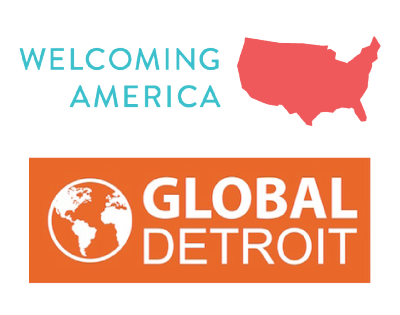Rust Belt Cities Embrace Immigrants as Key to Future
White House Joins Over 300 Rust Belt Leaders to Celebrate Innovations in Immigrant Welcoming, Integration, Urban Revitalization and Economic Development
White House official will keynote the 3rd Annual Welcoming Economies (WE) Global Network Convening. A growing number of Rust Belt cities are embracing immigrants as a means of revitalizing urban neighborhoods and spurring local economic growth, and will be participating in this year’s Dayton Convening. As a more welcoming approach to immigration spreads quickly across the Rust Belt – and pays off for local economies – a new field of practice is picking up steam.
The WE Global Network Convening in Dayton reveals the momentum that the field of immigrant economic development is experiencing. The number of local initiatives participating in this year’s Convening has more than doubled since the initial Convening in Detroit only two years ago. Attracting attention of the White House and national experts, the Convening’s expected attendance demonstrates the WE Global Network’s value and the Rust Belt’s position as a national leader in efforts to attract and retain global talent.
Keynote speaker Felicia Escobar, White House Special Assistant to President Obama for Immigration Policy, who played a key role in the creation and implementation of the first-ever federal immigrant integration policy, will speak about the White House Task Force on New Americans. Ms. Escobar’s attendance demonstrates the White House’s recognition of the WE Global Network and the work of local initiatives across the Rust Belt.
More than 250 attendees from across the country are expected at the Convening, which takes place all day Thursday, July 9th at the Dayton Convention Center. Hosted by Welcoming America, Welcome Dayton, the City of Dayton, City of Dayton Human Relations Council, and Global Detroit, it includes numerous workshops and panels designed to highlight cutting edge policies, successful programs, and innovative ideas in the emerging field of immigrant economic development.
Priority areas for the day’s sessions mirror Welcome Dayton’s five focus areas – including business and economic development, community culture and arts, education, government and justice, and health and social services – that guide Dayton’s immigrant integration work. “We believe we have something for cities and economic development leaders across the Rust Belt at this year’s convening,” said Melissa Bertolo, Welcome Dayton Program Coordinator. “The list of speakers represents the nation’s leaders in this emerging field of immigrant economic development.”
The Welcome Dayton initiative has been credited with reversing population decline, boosting economic competitiveness and vitality, and expanding opportunities for an increasingly diverse community. According to a report released today by the Partnership for a New American Economy, “Welcome to Dayton: How Immigrants are Helping to Grow Dayton’s Economy and Reverse Population Decline,” Dayton has really reaped the benefits of its immigrant economic development efforts. Dayton’s immigrants show exceptionally high rates of entrepreneurship (15.3% are self employed, over twice the average for their native-born counterparts), and possessed more than $115 million in spending power and contributed more than $15 million in state and local taxes annually. The PNAE report underscores why Dayton is the perfect backdrop for hosting the WE Global Network’s 3rd Convening and the growing movement of leaders pursuing immigrant economic development opportunities for their communities.
“Welcoming America is excited to use the WE Global Convening to release the first-ever Guide to Immigrant Economic Development,” said Welcoming America Director David Lubell. Authored by Global Detroit Director Steve Tobocman, the guide “Responds to the growing demand from communities looking to start or enhance an initiative to spark growth in their city and local economy by better integrating immigrants and the skills, entrepreneurial spirit, talent, and energy they bring to local economies,” added Lubell. As more communities in the Rust Belt recognize the value of immigrants to their local economies, this guide, and the Convening, can provide a framework to help them develop their own initiatives based on their local needs and infrastructure.




